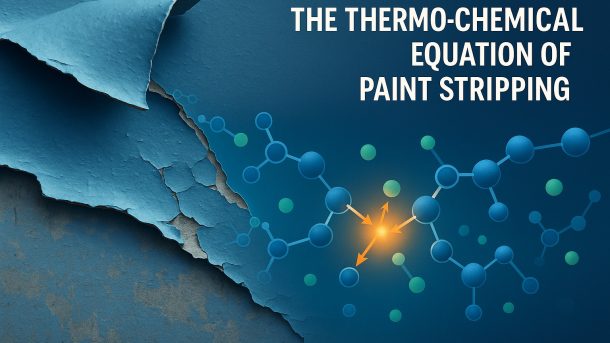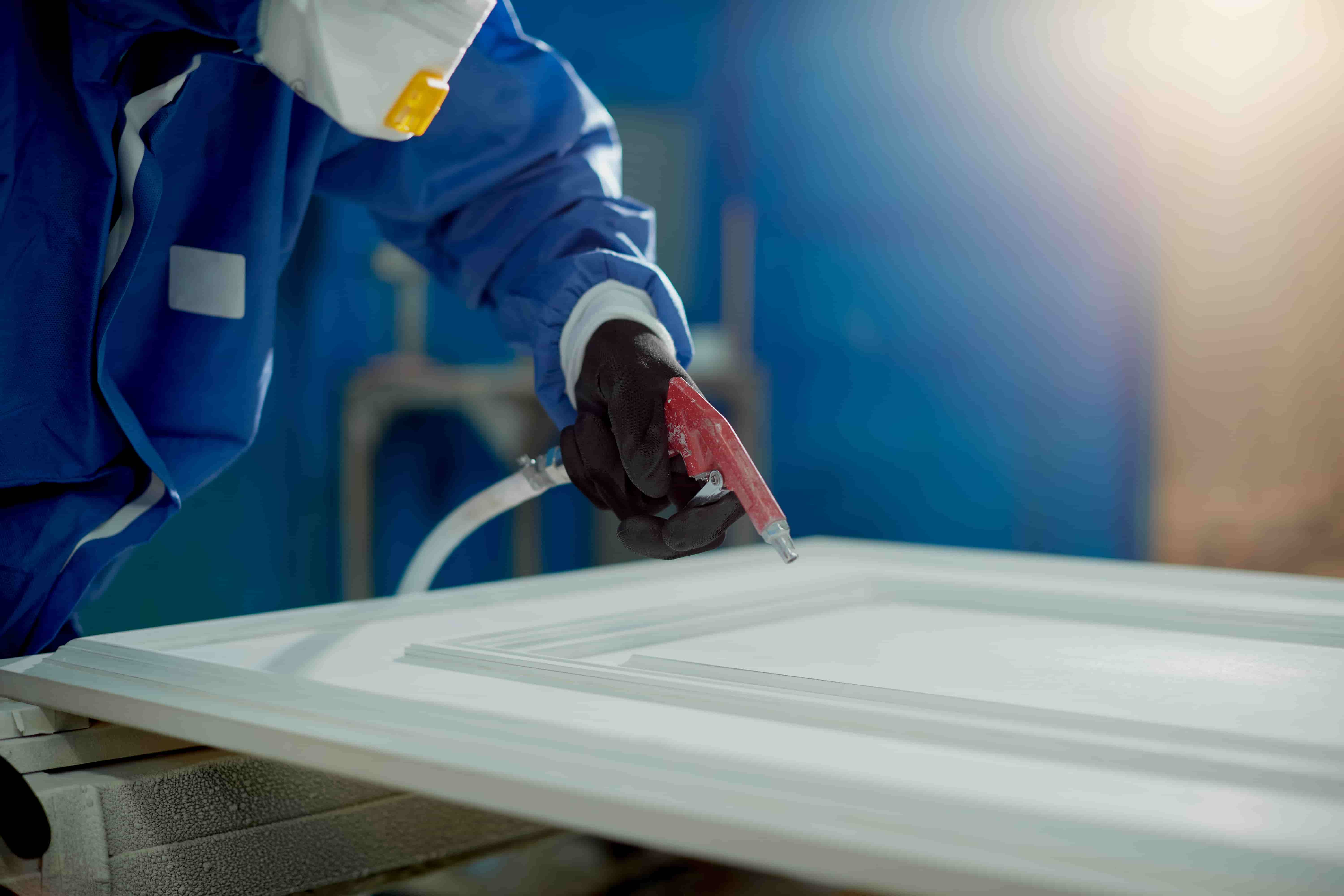When industrial coatings or legacy paints must be removed, there’s more happening than meets the eye. Paint stripping is not just a mechanical task; it’s a chemical ballet governed by reaction kinetics, solvent diffusion, and thermodynamics.
In this blog, we unpack the molecular science behind paint stripping service and how top-tier professionals like K&K Painting Corp in Boston align their techniques with regulatory, chemical, and environmental demands.
Paint Stripping 101: Molecular Disruption
Paint, at a molecular level, is a matrix of binders, pigments, and additives chemically bonded to substrates like metal, concrete, or wood. A paint stripping service works by breaking these bonds through:
- Solvent-based Action: Penetrates the paint matrix, dissolving polymer chains.
- Thermal Softening: Weakens adhesion via heat (within safe temperature limits).
- Mechanical Agitation: Complemented with chemicals or safe abrasives.
Thermodynamics at Work
At the heart of every paint stripping service lies energy transfer. Heat-activated chemical removers accelerate reactions by increasing molecular motion. As kinetic energy increases, bond-breaking reactions become more favorable.
- Endothermic Processes: Paint absorption of thermal energy softens molecular bonds.
- Activation Energy: Most stripping agents reduce this threshold to initiate breakdown.
Top-rated professional commercial painters understand that the ideal temperature must avoid substrate damage while maximizing stripping efficiency.
Regulatory Boundaries: Stripping with Compliance
In Massachusetts, especially Boston, paint stripping services must comply with federal and state environmental safety norms. Here’s how:
Methylene Chloride (MeCl) Restrictions
Massachusetts strictly regulates MeCl usage:
- Requires EPA notification for use, even in small amounts.
- Must follow Best Management Practices (BMPs) to minimize vapor release.
- Professionals must use airtight containers and explore safer alternatives wherever feasible.
“In Massachusetts, use of methylene chloride in paint stripping requires EPA notification, strict recordkeeping, and active efforts to minimize emissions or seek safer alternatives.”
Lead Paint Removal Laws
K&K Painting Corp frequently deals with legacy buildings where lead-based paint may be present. Here’s what Massachusetts mandates:
- Only HEPA-filtered sanding, wet scraping, or low-heat methods (<1000°F) are allowed.
- Methylene chloride-based removers are banned for lead.
- Requires licensed lead professionals, PPE, medical surveillance, and worker training.
“Massachusetts prohibits methylene chloride on lead-painted surfaces. Only certified professionals may use state-approved methods like HEPA sanding or wet scraping.”
VOC Content Compliance
- Strippers must comply with VOC limits: ≤100g/L for flat coatings.
- Products must follow RCRA (Resource Conservation and Recovery Act) if residues are hazardous.
“Massachusetts enforces strict VOC limits, typically under 100g/L for flat coatings, and mandates full compliance with RCRA hazardous waste disposal rules for toxic residues or lead debris.”
Abrasive Blasting Limitations
- Wet-mist blasting with vacuum-assisted systems is allowed.
- Dry abrasive blasting, torching, and certain solvents are prohibited in many settings.
“Abrasive blasting is highly restricted in Massachusetts and discouraged for residential or historic projects unless using approved wet-mist vacuum systems.”
Worker Certification and Documentation
- Technicians must be certified.
- Training must follow OSHA lead exposure protocols.
- Records on products, VOC levels, and techniques must be maintained for 3+ years.
“All professionals must be certified, follow OSHA guidelines, and retain detailed records of products and quantities used for a minimum of three years.”
What Happens to Paint on a Molecular Level?
Paint removal doesn’t just scrape off layers. It fundamentally changes the material composition:
- Polymer Chain Scission: Breaks down cross-linked resins.
- Pigment Suspension Collapse: Frees inorganic or organic pigments.
- Thermal Fragmentation: Changes paint structure through localized heating.
By understanding this molecular behavior, K&K’s team, known as one of the best painting companies in Boston, optimizes chemical load, dwell time, and environmental controls.
Eco-Conscious Paint Stripping: A Future-Ready Strategy
Today’s best paint stripping services combine chemistry with sustainability:
- Use biodegradable stripping agents
- Rely on low-VOC or VOC-free solvents
- Partner with hazardous waste handlers for certified disposal
- Invest in training and safety auditing
At K&K Painting Corp, these aren’t add-ons; they’re SOPs. The company’s approach ensures minimal impact on Boston’s ecosystems, indoor air quality, and worker safety.
Why Trust Professionals?
Hiring licensed, professional commercial painters ensures:
- Use of state-approved stripping methods
- Regulatory-compliant waste disposal
- Safer environments for occupants
K&K Painting Corp doesn’t just deliver clean substrates. They deliver compliant, efficient, and chemically sound results, backed by industry certification and environmental ethics.
Conclusion
Paint stripping is more than cleaning off layers; it’s a delicate balance of chemical science, regulatory compliance, and workmanship. Especially in Massachusetts, where every solvent, VOC level, and safety measure is tightly regulated, working with experienced professionals like K&K Painting Corp ensures that your project not only passes visual inspection but also passes the chemical, legal, and environmental tests.
Whether you’re restoring a historic façade or prepping for a new industrial coating, understanding the thermo-chemical equation of paint stripping service gives you an edge in safety, sustainability, and success.
We proudly serve:
Acton, Amesbury, Andover, Arlington, Ashland, Ayer, Bedford, Belmont, Beverly, Billerica, Boston, Boxborough, Boxford, Brookline, Burlington, Cambridge, Carlisle, Chelmsford, Chelsea, Concord, Danvers, Dedham, Dover, Dracut, Everett, Framingham, Georgetown, Gloucester, Groton, Hamilton, Haverhill, Holliston, Hopkinton, Hudson, Ipswich, Lawrence, Lexington, Lincoln, Littleton, Lowell, Lynn, Lynnfield, Malden, Manchester, Marblehead, Marlborough, Maynard, Medford, Melrose, Methuen, Middleton, Natick, Needham, Newburyport, Newton, North Andover, North Reading, Peabody, Reading, Revere, Salem, Saugus, Somerville, Stoneham, Sudbury, Tewksbury, Topsfield, Wakefield, Waltham, Watertown, Wayland, Wellesley, Wenham, Weston, Wilmington, Winchester, Woburn, Ashby, Atkinson, Brookline, Derry, East Kingston, Epping, Exeter, Fremont, Hampstead, Hampton, Hollis, Hudson, Kingston, Londonderry, Manchester, Merrimack, Milford.
Explore K&K’s full offering here: Paint Stripping Service.





